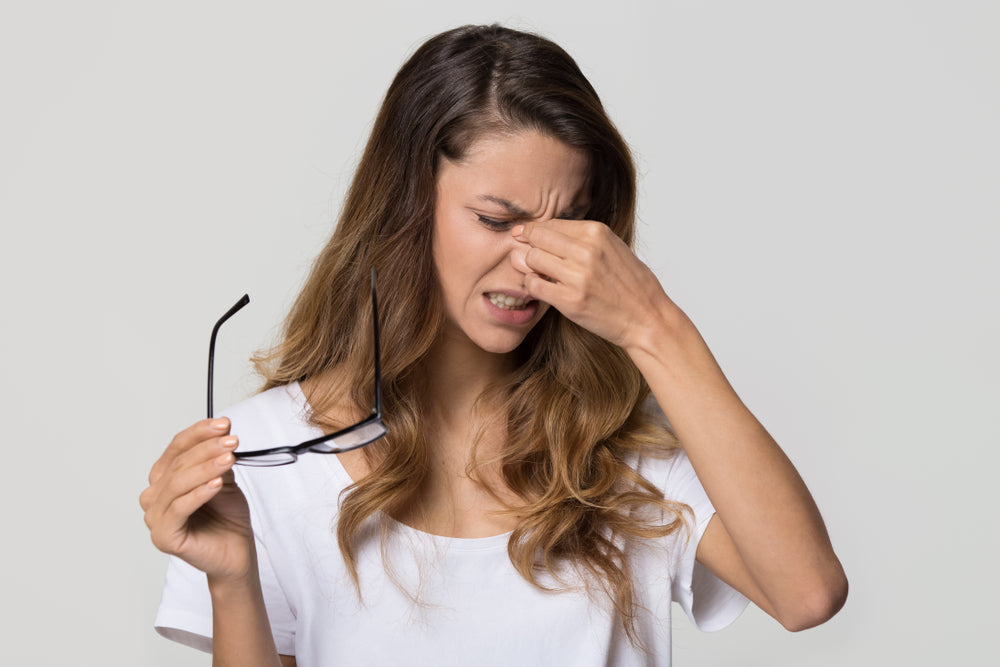Melatonin gummies, like many other supplements, are seen as a natural solution to various health issues. They have become a popular sleep aid, especially for those struggling with insomnia, jet lag, and even shift work sleep disorder. While the potential benefits are widely promoted, it's crucial to also discuss the possible risks associated with the active ingredients in these supplements. Let's take a deep dive into understanding the potential risks associated with the active ingredients in melatonin gummies.
What Are Melatonin Gummies?
Before we delve into the potential risks, let's clarify what we're discussing. Melatonin gummies are dietary supplements designed to aid sleep. The active ingredient in these gummies is melatonin, a hormone naturally produced by our bodies that signals the brain it's time for sleep.
If you're interested in understanding more about these ingredients, Deerforia has a detailed explanation on the Melatonin gummy's Ingredients.
Understanding The Potential Risks
Even though the body naturally produces melatonin, adding more to the body in the form of supplements does come with potential risks. It's crucial to remember that the Active Ingredients in melatonin gummy's Explained are potent substances that should be used responsibly.
Dependence and Diminishing Returns
One significant risk associated with melatonin gummies is the possibility of dependence. Over time, the body might become accustomed to the supplemental melatonin, leading to less production of the hormone naturally. In addition, some individuals may experience a diminishing return, meaning the effectiveness of the supplement reduces over time.
Possible Side Effects

While melatonin is generally safe for short-term use, it can cause some side effects. These may include headaches, dizziness, nausea, and even daytime sleepiness. In some cases, people may experience mood changes, irritability, or confusion.
Children and Melatonin Gummies
Melatonin gummies are increasingly popular for helping children with sleep problems. However, their safety in children is still under debate. While these products can help kids fall asleep, it is essential to remember they are not a long-term solution for sleep issues.
Moreover, it's crucial to understand the Potential Risks Associated with Active Ingredients in melatonin gummy's, especially for children. One concerning factor is that the long-term effects of melatonin supplementation in children are still not fully understood.
Regulatory Considerations
In the United States, the Food and Drug Administration (FDA) doesn't regulate dietary supplements, including melatonin gummies, as rigorously as they do pharmaceuticals. This means that the strength, purity, or safety of the product cannot be guaranteed. It's always recommended to purchase products from a reputable source like Deerforia, which provides quality and transparency.
It's Not All Doom and Gloom
While it's important to be aware of the potential risks associated with melatonin gummies, it's equally important to remember their benefits. When used correctly, they can aid in sleep regulation, especially for those with circadian rhythm disorders or people dealing with jet lag.
Additionally, understanding both the active and inactive ingredients is crucial. We encourage you to learn about the Inactive Ingredients in melatonin gummy's Explained, and the Potential Benefits of Inactive Ingredients in melatonin gummy's on the Deerforia blog.
Frequently Asked Questions (FAQ)
Can Melatonin Gummies Cause Dependence?
Yes, regular use of melatonin gummies may lead to dependence. As your body gets used to the additional melatonin, it may naturally produce less. Over time, this could lead to a reliance on the supplement for sleep, which is not ideal. It's essential to use such supplements responsibly and only after consulting a healthcare professional. Read more about the Active Ingredients in melatonin gummy's Explained on the Deerforia blog.
Are There Any Side Effects of Melatonin Gummies?
Yes, some people may experience side effects such as headaches, dizziness, nausea, or daytime sleepiness. In rare cases, it could cause mood changes or confusion. Understanding the Potential Risks Associated with Active Ingredients in melatonin gummy's is crucial before beginning any supplement regimen.
Can Children Use Melatonin Gummies?
While melatonin gummies can help children struggling with sleep issues, their safety and long-term effects in children are still under research. Always consult a pediatrician before giving your child any supplements. For more information, read our detailed article about the Potential Risks Associated with Inactive Ingredients in melatonin gummy's.
How Do I Know if a Melatonin Gummy Supplement is Safe?
The FDA doesn't regulate dietary supplements as strictly as pharmaceuticals, so it's important to buy from a trusted source. Ensure the product has been tested for quality, and always read the label for ingredients. Deerforia is a reputable source for supplements, known for quality and transparency. Check out their Melatonin gummy's Ingredients list to know more.
Can Melatonin Gummies Cure Sleep Disorders?
While melatonin gummies can assist with sleep regulation, they are not a cure-all. They can be helpful for temporary sleep issues or regulating sleep cycles for those dealing with jet lag or shift work sleep disorder. However, they are not meant to replace good sleep hygiene practices or treatment for chronic sleep disorders.
In Conclusion
As consumers, it's our responsibility to understand the benefits and risks of the products we use. Melatonin gummies, like all supplements, should be used responsibly and as part of a healthy lifestyle. Always consult with a healthcare professional before starting any new supplement, and ensure you're informed about all the potential risks and benefits.
Just remember, while melatonin gummies can help with sleep problems, they are not a cure-all. Proper sleep hygiene, including maintaining a consistent sleep schedule, limiting screen time before bed, and regular exercise, is also a crucial part of good sleep health. At the end of the day, supplements are just one piece of the wellness puzzle.


